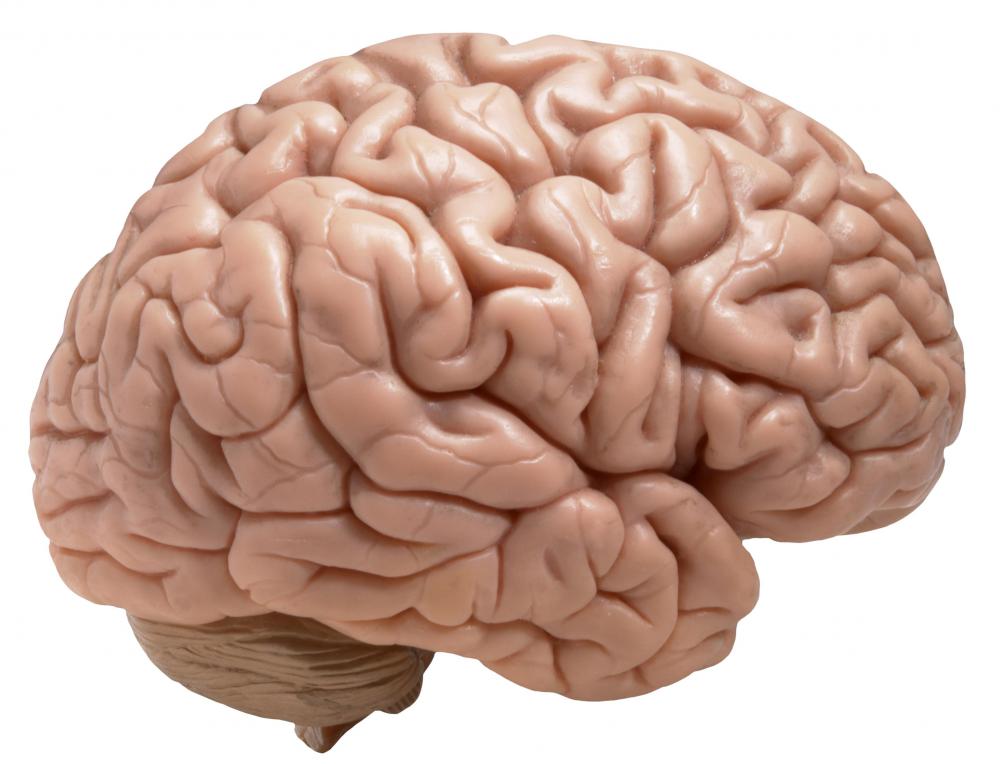At WiseGEEK, we're committed to delivering accurate, trustworthy information. Our expert-authored content is rigorously fact-checked and sourced from credible authorities. Discover how we uphold the highest standards in providing you with reliable knowledge.
What is Nicotine Addiction?
Nicotine addiction is a physical reaction of the body to repeated doses of nicotine. It can also be seen as an emotional reaction that builds up over time in relation to using the products that contain nicotine. A person with a nicotine addiction may have a nearly uncontrollable urge to use products that contain nicotine, and that need can come from both emotional and physiological processes. Nicotine addiction is comparable to many other serious addictions when it comes to severity and difficulty in quitting.
The mechanism behind physical addiction to nicotine is based on chemicals released in the brain. When someone uses a nicotine product, like a cigarette, for example, it causes a person's body to release many brain chemicals, including one called dopamine. This chemical can create feelings of euphoria in heavy doses. Many other drugs cause a release of dopamine, including cocaine. The brain can become dependent on dopamine, and eventually, there is a mental association made between dopamine and the nicotine product, which often eventually leads to a physical addiction.

When people suffer from this kind of addiction, their brains start producing a smaller level of dopamine on a regular basis, so when they don’t have the nicotine product, they will often feel bad. They may feel angry or depressed or nervous, and they may even lash out at people around them. When they take the nicotine product, their dopamine levels are generally raised, but only enough to reach a normal level. This basically means that over time, nicotine addiction makes someone feel chronically negative, and the only way to reach normality is with the nicotine. This level of addiction happens gradually enough so that the smoker may not even be aware of the effect.

There is also a purely psychological level to nicotine addiction. People don’t only become addicted on a chemical level. They also become dependent on the act of taking the nicotine. For example, smokers often associate smoking with many normal daily behaviors, like watching television or reading. When they quit, they may feel like all their activities are missing something, and they may have difficulty enjoying things for a while.

There are many approaches to dealing with nicotine addiction. Some people simply stop using nicotine products and try to deal with the withdrawal. This can be quite difficult, and some people can’t handle it. There are also drugs designed to lessen nicotine cravings, and there are products such as patches that make it easier to wean the body off from nicotine.
AS FEATURED ON:
AS FEATURED ON:













Discussion Comments
@ddljohn-- They work for some people but not for others. I think the idea is to use these products to lessen the amount of nicotine over a period of time. This lessens nicotine withdrawal symptoms.
My instructor at college quit smoking recently and he's chewing nicotine gum to deal with cravings. He chews about four pieces of gum during every lesson which lasts three hours.
I'm glad he quit but it seems like he's getting the same amount of nicotine from his gum. So do these nicotine withdrawal products for stopping smoking really work? Or is he just paying for nicotine in another form?
I completely agree that smoking is both a physical nicotine addiction and an emotional addiction. Quitting smoking is hard alone because nicotine is very addictive. But when someone is emotionally attached to smoking, it becomes even more difficult to quit.
I smoked for fifteen years when I was young, I had a strong emotional addiction to cigarettes. I craved nicotine when I didn't smoke and experienced symptoms like headaches and moodiness. These were signs of my physical addiction. But there was also an emotional attachment, especially because I used cigarettes to socialize.
All of my friends smoked and I was more likely to become friends with people who smoked. I felt that it was something important that we had in common. Getting together with people and smoking or smoking during a break at work with another coworker and chatting was important for me. I felt like I belonged. So when I stopped smoking, I felt like I was missing out on this social life.
Of course I overcame this and found other things in common with people. But it was challenging for a while.
Post your comments